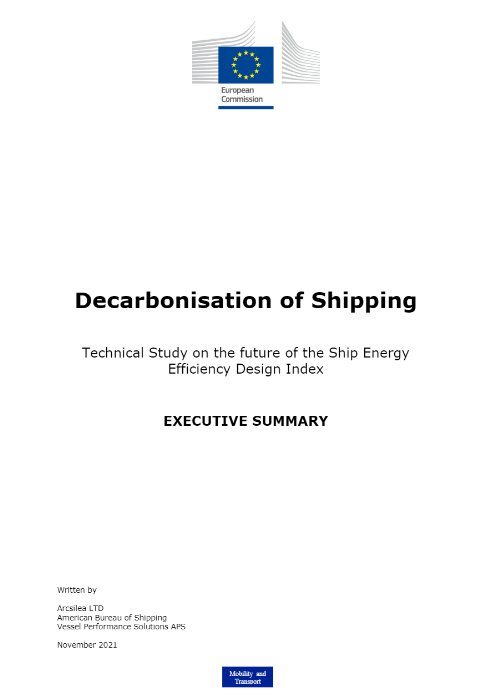Título: Decarbonisation of shipping
Resumen:Este informe examina la aplicación del marco EEDI y su efecto sobre el diseño de los buques y la eficiencia energética en general. Muestra que el EEDI, junto con las condiciones del mercado, ha dado lugar a mejoras sustanciales en la eficiencia energética de los buques. Esto se ha logrado principalmente con motores más eficientes, la optimización hidrodinámica y la adopción significativa de dispositivos de ahorro de energía, pero la adopción de otros tipos de tecnología innovadora ha sido limitada por una serie de razones. Aumentar la adopción de dispositivos de ahorro de energía y tecnología innovadora no es necesariamente posible o deseable porque los diferentes tipos de buques y perfiles de funcionamiento afectan al potencial de ahorro de energía de estos dispositivos y tecnología. El EEDI tiene que integrarse en general con la medida de las ICI y con las próximas HCH, y el papel y la forma del EEDI también tienen que adaptarse durante un periodo en el que el tipo de combustible y el diseño de los buques están en transición. Por ello, el calendario y el índice de reducción de la fase 4 deben tener en cuenta el efecto de estas otras medidas. Se investigan y proponen algunos ajustes y cambios menores, pero los cambios de mayor envergadura requieren un nuevo trazado de las líneas de base.
Summary:This report examines the implementation of the EEDI framework and its effect on ship design and energy efficiency in general. It shows that EEDI, together with market conditions has resulted in substantial improvements in energy efficiency of ships. This has been achieved mainly with more efficient engines, hydrodynamic optimisation and significant uptake of energy saving devices, but uptake of other types of innovative technology has been limited for a number of reasons. Increasing uptake of energy saving devices and innovative technology is not necessarily possible or desirable because different ship types and operating profiles affect the energy saving potential of these devices and technology. EEDI broadly needs to integrate with the CII measure and any upcoming MBM and the role and form of EEDI also needs to be adapted through a period where fuel type and ship design are in transition. As such the timing and reduction rate of Phase 4 should take into account the effect of these other measures. Some minor adjustments and changes are investigated and proposed, however larger scale changes require redrawing of the baselines.
Fecha publicación: 01-04-2022
Autor: American Bureau of Shipping , Arcsilea LTD , DG Movilidad y Transportes (Comisión Europea) , Vessel Performance Solutions APS
ISBN / ISSN: 978-92-76-49235-1
Link: https://bit.ly/3rQqvM2
Palabras clave: ahorro de energía , buque , combustible sustitutivo , contaminación por barcos , Derecho de la energía , informe , innovación , reducción de las emisiones de gas , rendimiento energético , tecnología energética , transporte marítimo
Keywords: energy efficiency , energy law , energy saving , energy technology , innovation , maritime transport , pollution from ships , reduction of gas emissions , report , substitute fuel , vessel
- Saltar a la navegación principal
- Saltar al contenido principal
- Saltar a la barra lateral principal
- Saltar al pie de página

CDE Almería - Centro de Documentación Europea - Universidad de Almería
Centro de Documentación Europea de la Universidad de Almería
